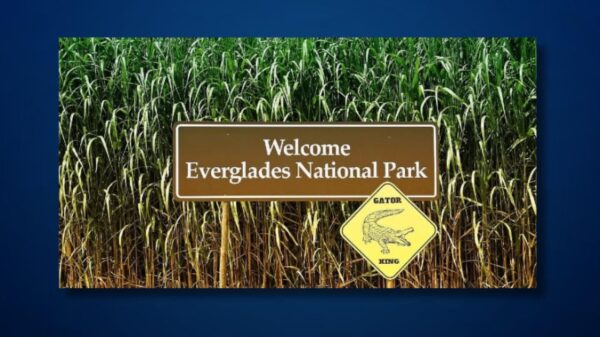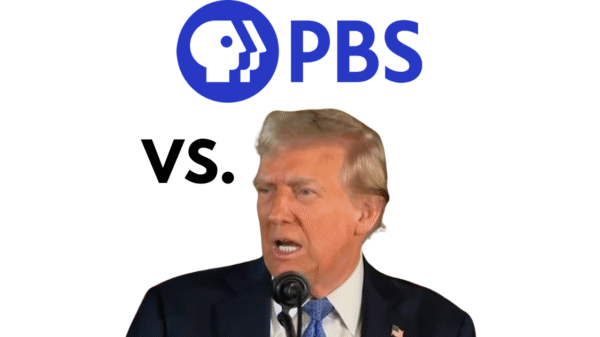With Congress and the White House agreeing on a $2.2 trillion stimulus package to help the economy through the coronavirus crisis, Florida’s senators are focused on the $377 billion included in it for small businesses.
U.S. Sen. Marco Rubio, R-Fla., the chairman of the U.S. Senate Small Business and Entrepreneurship Committee, offered an update over the weekend on the Small Business Administration’s (SBA) Paycheck Protection Program, which started on Friday.
Rubio pointed to numbers released by SBA Administrator Jovita Carranza which showed more than 17,500 loans, which totaled more than $5.4 billion, were approved by end of business on Friday.
“Just last week, Congress passed and President Trump signed the Paycheck Program into law,” Rubio said on Saturday. “Yesterday, just days after becoming law, small businesses across the country received billions of dollars in Paycheck Protection Program loans. Nearly all of the lending completed yesterday came from existing 7(a) small business lenders like community banks. As I argued when I first proposed to use the SBA’s guarantee programs to get assistance to small businesses quickly, these community banks were ready to go on day one. Their actions yesterday saved hundreds of thousands of jobs.
“The speed with which the administration stood up this program is an incredible feat, but it’s also important for a little patience and a little honesty,” Rubio continued. “When you launch something this unprecedented and far-reaching just seven days after it becomes law there will inevitably be problems. The good news is that every problem we saw yesterday can be fixed. I am on the phone constantly with Treasury, the SBA, and bankers across the country and all across Florida to make sure it gets better each day we move forward.”
Still, Rubio showcased some findings from his office and U.S. Treasury Department about concerns and remedies in the program so far. Those concerns with remedies can be found after the article.
Rubio also teamed up with U.S. Rep. Nydia Velazquez, D-NY, the chairwoman of the U.S. House Small Business Committee, and U.S. Rep. Steve Chabot, R-Ohio, the top Republican on the committee, in sending a letter to Carranza to clarify congressional intent on the loans.
“The law intended to allow farms and agricultural businesses, which do not have access to typical disaster assistance resources offered by the U.S. Department of Agriculture during physical disasters, to be eligible for EIDL during this current pandemic crisis,” Rubio’s office noted.
“We write to clarify congressional intent of Section 1110 of the Coronavirus Aid, Relief, and Economic Security (CARES) Act (Public Law 116-136), which expands eligibility for access to the U.S. Small Business Administration’s Economic Injury Disaster Loan (EIDL) program. Given the circumstances of this worldwide pandemic and absence of other typical disaster resources, Congress intended for farms and agricultural businesses suffering economic injury due to COVID-19 to be eligible for EIDL during the covered period,” Rubio, Velazquez and Chabot wrote.
“The unprecedented nature of the novel coronavirus pandemic calls for flexibility to assist businesses across multiple sectors of our economy. In addition to small business concerns, private nonprofits organizations, and small agricultural cooperatives, Section 1110 of the CARES Act expands eligibility for EIDL to include businesses (including tribal businesses), cooperatives, and ESOPs with not more than 500 employees, or any individual operating a sole proprietor or and independent contractor during the covered period (January 31, 2020 to December 31, 2020),” they added.
“Agricultural enterprises have historically been excluded from EIDL to prevent duplication and overlap with the U.S. Department of Agriculture’s (USDA) disaster assistance programs. These businesses are, however, eligible for assistance under other SBA programs, including 7(a). Given the nature of this pandemic without a physical disaster footprint, USDA disaster assistance was not triggered and thus not available. As such, the law prescribes for agricultural entities encompassed under the expanded eligibility portion of the act to be able to apply for assistance under EIDL temporarily during the covered period,” they continued.
“In line with this congressional intent, we ask that the SBA offer clear guidance for farms and agricultural businesses to access the EIDL in response to COVID-19. This would include updating the COVID-19 EIDL application eligible entity verification on the agency’s website to prevent confusion and allow all intended entities access to EIDL,” they wrote in conclusion. “Thank you for your prompt attention and action in response to this matter.”
On Sunday, U.S. Sen. Rick Scott, R-Fla., reached out to U.S. Treasury Sec. Steven Mnuchin and Carranza urging them to quickly address problems with the Paycheck Protection Program and offer guidance.
“Thank you for your ongoing efforts to rapidly implement new U.S. Small Business Administration (SBA) Coronavirus relief programs to help small businesses who are hurting around our country,” Scott wrote. “Congress recently passed, and the president signed into law, the Coronavirus Aid, Relief, and Economic Security (CARES) Act, which includes new assistance for small businesses. Last week, I fielded numerous concerns from Florida’s small business owners regarding the rollout of one of these new efforts, the Paycheck Protection Program, which began on April 3, 2020.
“I am receiving reports of small businesses who are simply unable to begin applying for Paycheck Protection Program loans from their financial institutions. Some financial institutions appear to be requiring unrelated products to apply for a loan, and other small business owners reported getting conflicting information as to when and how they could start their applications. I have also spoken with lenders, who expressed significant concerns with the lack of guidance, including the documentation necessary to substantiate each loan,” Scott continued.
“I am writing to ask for clarity and understanding on how the Treasury and SBA will be handling these outstanding issues,” Scott added. “When will all the necessary forms and guidance be issued and made public for the Paycheck Protection Program so that all eligible small businesses and lenders can effectively and efficiently apply for and process these loans? Lenders report that they are still lacking guidance and forms to get these companies the loans they need.
“I have heard from Floridians, who are customers at both large and small banks, and are being told that they cannot access Paycheck Protection Program loans because they don’t have existing business with the bank. Please confirm that there currently is not and will not be any requirements that small business applicants must have existing business, loans, or accounts with a lending institution in order to apply for a Paycheck Protection Program loan with that institution,” Scott wrote.
“There are no requirements written into current law, and small businesses need assurances that the SBA or Treasury will not create new hurdles. Please confirm that religious non-profits and churches are eligible to apply for Paycheck Protection Program loans. The CARES Act is clear in its intent that churches and religious non-profits be included in this program. Regarding the E-TRAN system, what plans are currently in place to ensure this system can handle and adapt to the new requirements and influx of applicants so that loans can be processed and approved efficiently and effectively?” Scott asked. “Regarding the ‘affiliate rule,’ when will the Treasury and SBA issue guidance on how this will be applied under the Paycheck Protection Program?
“Many non-profits and other types of small businesses have been put in a unique situation disallowing them from applying, and they need guidance now so they can access the Paycheck Protection Program (e.g., food bank non-profits with several chapters around the state can be affiliated together to total more than 500 employees),” Scott wrote. “On April 10, 2020, both independent contractors and self-employed individuals will be able to apply for the Paycheck Protection Program. Will Treasury and the SBA have the necessary guidance available to allow for a smooth rollout this week?
“The answers to these questions are critical to the success of the Paycheck Protection Program and to the survival of many small businesses across our country. Thank you for your efforts to help those that are struggling, and I look forward to your reply. The timeliness of your response is critical – our businesses are hurting and need relief now,” Scott concluded.
Reach Kevin Derby at kevin.derby@floridadaily.com.
Day One Concerns with Remedies:
Large Bank Existing Customer Policy: On Friday, there were reports of large banks declining applications unless the business owner had previously taken out a loan or a credit card from the lender. Business owners that have had 20-year relationships had their loan applications denied. Some larger banks are only accepting PPP applications from individuals with prior relationships at the bank.
Good News: Banks are already starting to change their policy on this and will start accepting new customers. More large banks will be up and running early next week. FinTechs, including PayPal and other online lenders, are ready to process PPP loans and can help with the demand for businesses that do not have existing bank relationships. The nonbank lender application will be out soon.
Holding Loans: Bank and nonbank lenders are concerned about the interim final rule requiring lenders to hold loans for seven weeks before they can be purchased by the government. Community banks and FinTech lenders need a liquidity or purchase market to continue to make loans to small businesses, especially considering the demand that occurred today and is expected to continue.
Solution: Chairman Rubio called for the new Federal Reserve lending facility to ensure community banks and FinTechs have the liquidity they need to continue to make PPP Loans.
Affiliation Rules for Businesses and Nonprofits: Lenders are requesting clear guidance on the application of SBA affiliation rules to businesses, including the now eligible 501(c)(3) nonprofit entities, which have not previously been eligible for 7(a) loans.
Good News: SBA and Treasury released an interim final rule and guidance on several affiliation issues, and Chairman Rubio will continue to engage with the agencies on further guidance.
Additional Outstanding Issues:
Independent Contractor Eligibility: The interim final rule has contradicting guidance determining whether business owners should include independent contractors’ 1099s in their payroll cost calculation. Chairman Rubio’s staff has communicated this contradictory information to the SBA.
Technology Issues: Some lenders have reported the SBA’s internal system for loan application processing, called E-Tran, has been slow. This is to be expected with the volume of loan applications to be processed. The SBA has contracted with a third-party provider to ensure the E-Tran system issues are worked out and addressed as they come up. Additionally, some community banks have reported issues with accessing the online portal, by which SBA will provide access to non-SBA lenders. The SBA is working through the issues to get everyone online.
Money: Based on demand, it is clear that Congress will need to appropriate additional money for this program. Based on initial calculations, and as more lenders begin to participate in PPP, funding for the program could run out before the end of the covered period, which is June 30, 2020. Chairman Rubio has committed to working with his colleagues to provide additional funding for PPP.




















